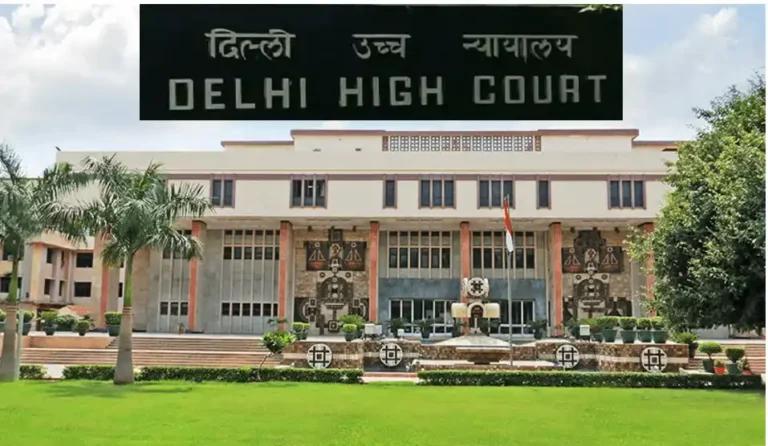United Against Hate founder Khalid Saifi, accused in the 2020 Delhi riots 'larger conspiracy' case, argued before the Delhi High Court on March 25 that there was no evidence proving he committed a terrorist act or conspired to do so.
Senior Advocate Rebecca John, representing Saifi, emphasized that simply being present at a protest site in a public place is not sufficient to invoke the stringent Unlawful Activities (Prevention) Act (UAPA).
Read Also: Delhi High Court Awards ₹34.41 Lakh To Bridgestone In Trademark Infringement Case
No Evidence of Terrorist Act
John made her rebuttal submissions during the hearing before a division bench comprising Justice Navin Chawla and Justice Shalinder Kaur.
"Assuming that I was present at Jantar Mantar, mere presence at a protest site which is at a public place cannot be a ground to invoke UAPA or to say that there was a conspiracy to create riots," she stated.
She argued that Saifi had attended the protest against the Citizenship Amendment Act (CAA) based on his belief that the law was unjust. Additionally, John pointed out that two individuals who had created the DPSG WhatsApp group were not made accused in the case by the Delhi Police.
Read Also: Execution of Gift Deed After Arbitral Award Indicates Attempt to Evade Decree: Delhi High Court
"I accuse the prosecution of following the policy of pick and choose. They decide who are going to be the accused while they read out materials against persons who are not accused but are administrators of groups," she asserted.
Public Places and Allegations of Conspiracy
John highlighted that public places such as Jantar Mantar and the Gandhi Peace Foundation, where Khalid was present, are known venues for seminars and discussions, not for hatching conspiracies.
"For them to say that conspiracy meetings [were held there], that may be the ingenuity of the IO, but nothing turns on it," she argued.
No Recovery of Money or Weapons
John also pointed out that no money or weapons were recovered from Saifi. She noted that charges under the Arms Act were dropped against him in FIR 44 of 2020, where he is already out on bail, as there was no evidence linking him to any arms.
She further emphasized the condition in which Saifi was presented before the court on the first remand day.
"On the first remand day, Khalid was produced inside the Court on a wheelchair, injured and with a plaster," she stated.
"This story is a cover-up by the police to ensure their wrongdoings are not highlighted…. This must shock the conscience of the Court. On the first remand, I am produced in plaster on a wheelchair…. This is the credibility of the prosecuting agency that has kept me in jail for five years."
Read Also: Delhi High Court Upholds Arbitrator's Decision on 'Jeeto Har DinZo' Tagline Dispute
Questions Over Selective Evidence
John argued that the prosecution was selectively using evidence, particularly WhatsApp chats, while ignoring other context.
"What I say and what they are saying, these are triable issues. But you cannot selectively read [WhatsApp chats]. The photos annexed with the petition are not part of my chargesheet, but there is conversation about brutality in the DPSG chat which they have relied upon."
She concluded that there was no proof of any terrorist act committed by Saifi or any conspiracy to do so.
The court has scheduled the next hearing for April 16.
Read Also: Delhi High Court Denies Interim Injunction in Patent Infringement Case Over Drug for Rare Disease
Background of the Case
The bench is hearing bail pleas filed by several accused in the case, including Umar Khalid, Sharjeel Imam, Mohd. Saleem Khan, Shifa ur Rehman, Shadab Ahmed, Athar Khan, Khalid Saifi, and Gulfisha Fatima.
The case, registered as FIR 59 of 2020 by the Delhi Police Special Cell, includes multiple charges under the Indian Penal Code (IPC) and the Unlawful Activities (Prevention) Act (UAPA).
The accused individuals in the case include Tahir Hussain, Umar Khalid, Khalid Saifi, Ishrat Jahan, Meeran Haider, Gulfisha Fatima, Shifa-Ur-Rehman, Asif Iqbal Tanha, Shadab Ahmed, Tasleem Ahmed, Saleem Malik, Mohd. Saleem Khan, Athar Khan, Safoora Zargar, Sharjeel Imam, Faizan Khan, and Natasha Narwal.
Case Title: Umar Khalid v. State and other connected matters















